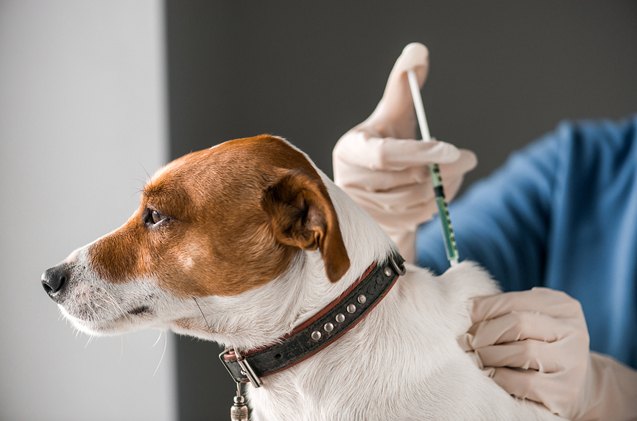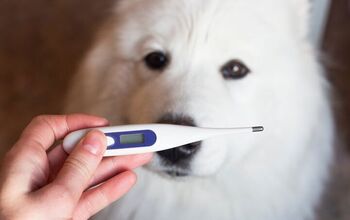You might think your dog feels fine in cold weather, thanks to their thick coat, but they can definitely feel the chill—and when they aren’t warm and comfortable, they could develop serious problems like hypothermia. So, it’s important to know the signs that your dog is cold, and to take steps to keep your pet comfy, whether they’re indoors or outside. Although any dog can be affected by cold temperatures, wind, and snow, some are going to feel the drop in temperature sooner or more intensely. Puppies and seniors, as well as small dogs and those with short coats, are a few examples, along with hairless dogs and those who are ill or have chronic medical conditions.Signs Your Dog Is ColdHere are some of the ways to tell if your dog is cold:Your dog feels cold to the touch – An easy way to tell if your dog is cold is by petting them and feeling the temperature of their body. A good place to check is their ears, but also touch their paws, belly, and skin under their fur. If their body is cool to the touch, there are ways to warm them up.Your dog doesn’t want to be active – If your dog isn’t as active as they usually are, they might be feeling the chill in the air. Feel their body, as discussed above, to see if they’re cold, and take steps to make them warm. A dog who’s moving more slowly than normal while outside should be brought inside right away. Your dog is shivering – Just like people shiver when they’re cold, dogs will too, so this is an obvious sign that your pet needs to be warmed up as soon as possible. If your dog is trembling, consider the temperature inside your home, as you might need to turn the heat up. And if your dog is shaking while outside in the cold, bring them inside right away.Your dog is searching for ways to stay warm – If your dog wants to lie down next to the fireplace or heater, or they want to snuggle up next to you or under a blanket, they’re looking for ways to get warm. In addition, your dog might be reluctant to go outside, whether for a walk or to go potty. If they’re outside and you see them trying to find some shelter to warm up, bring them in immediately. Your dog’s body language and vocalizations change – If you know your pet’s normal behavior and demeanor, it should be easy to tell when they’re cold. There will be signs that they’re uncomfortable, and they might exhibit anxious behaviors that let you know something is wrong. For example, your dog may tuck their tail, have a hunched posture, or curl up in a ball, and they might also bark or whimper. What To Do if Your Dog Is ColdWhenever your dog is showing signs of feeling cold, take action right away. Remember, a dog who gets too cold is at risk of hypothermia. Also, the cold can make some dogs, such as those with arthritis, experience even more discomfort. If your dog is outside, bring them inside. And if they’re wet from rain or snow, dry them gently.If your dog is already inside, move them to a warmer area, such as near a heat source and away from drafts.Help your dog feel warm and cozy indoorsYou can rub and massage your dog to help generate some warmth with your hands. Give your pet a cozy bed to rest in, and cover them with a blanket. You can also lie down next to your dog to help them warm up.There are heated dog beds you can use whenever your dog is chilly, along with dog heating pads that can work well too—just be sure to use these products as directed for safety and so your pet won’t get too hot. Keep your dog warm while outsideBefore heading outside with your dog, check the temperature. Generally, if it’s colder than 45°F (7°C), you should take additional precautions to ensure your pet won’t get too cold. But you know your individual dog best, so you’ll know when they need extra protection and less time outside.There are various jackets, sweaters, and boots made for dogs of all breeds and sizes. Put these on your canine companion before heading outside so they can stay warm while they go potty or go for a short walk.If it’s too cold for a walk or play session outside, don’t force your dog to stay out there. Instead, find ways to play with your dog indoors until the weather warms enough to be safer and more comfortable for your pooch.Use products that help your dog warm up and stay warmHere are a couple of items to consider buying for your dog: K&H Self-Warming Crate Pad

























